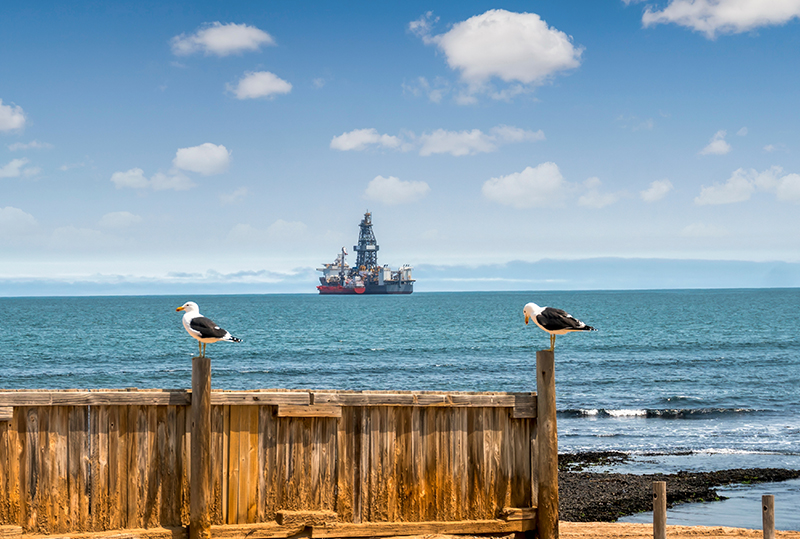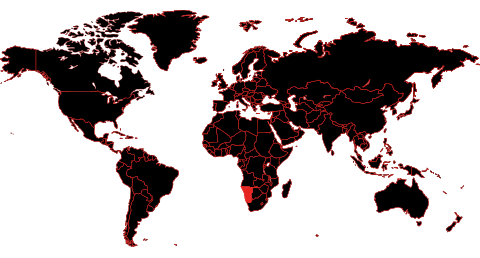Building Expertise for a Global-Standard Industry
The Next Critical Resource: Talent Development
As Namibia moves from an exploration hotspot to a full-fledged energy producer, the most valuable resource is not just oil or gas—it is the people who manage, operate, and sustain this industry. The oil and gas sector is one of the most technically demanding industries in the world, requiring a skilled workforce capable of operating under extreme conditions, using advanced technology, and meeting global safety and efficiency standards.
This is where Lelo Energies takes the lead. As Namibia’s premier crew management company, our expertise is not just in placing personnel on rigs and offshore platforms but in developing an entire workforce ecosystem that is technologically advanced, highly skilled, and globally competitive.
Without a pipeline of engineers, project managers, geologists, safety officers, marine logistics experts, and drilling technicians, Namibia risks becoming a passive observer in its own energy boom—an industry where foreign expertise dominates while local professionals remain underutilized.
Bridging the Skills Gap Through Strategic Partnerships
The energy industry is complex, high-stakes, and rapidly evolving. Traditional training methods are no longer sufficient—Namibia must prepare its workforce with cutting-edge, technology-driven education and strategic partnerships that guarantee sustainable local leadership in the sector.
A strong example of proactive workforce development is the recent collaboration between PETROFUND and SBM Offshore, designed to train and upskill Namibians for the growing oil and gas industry. This initiative marks an essential shift toward ensuring that Namibia’s energy sector is developed, managed, and sustained by Namibian expertise.
However, one initiative is not enough. Namibia’s energy future depends on a comprehensive, multi-tiered strategy to close the skills gap and ensure long-term self-sufficiency.
Namibia needs a comprehensive workforce development strategy that includes:

Technology-Driven Education: The Future of Workforce Training
Oil rigs and offshore platforms are no longer run by manpower alone—they are managed through high-tech, digitally integrated systems. At Lelo Energies, we are integrating:
AI-powered predictive maintenance training: Teaching crews how to use AI for real-time equipment diagnostics, reducing downtime and improving safety.
Digital twin technology: Creating virtual training environments that simulate real-life rig operations, allowing trainees to practice high-risk tasks in a safe digital space.
Remote drilling operation modules: Training personnel to operate drilling systems remotely, improving efficiency and reducing the need for excessive offshore deployment.
Cross-Sector Collaboration: Building an Energy Workforce That Lasts
The most successful energy industries do not rely on government alone to train their workforce—they build a strong ecosystem of private sector, government, and academic partnerships.
Industry-University Integration: Lelo Energies is working to bridge the gap between academic education and real-world application by introducing direct training programs, apprenticeships, and scholarships for technical and management roles in oil and gas.
Global Knowledge Transfer: We partner with international crew management and maritime logistics companiesto ensure Namibian workers are trained to international standards, making them competitive not just locally, but in global energy markets.
Safety & Compliance Leadership: The future of Namibia’s energy workforce must be built on a foundation of stringent safety protocols and operational compliance. Lelo Energies ensures that every crew member, from engineers to offshore technicians, is trained to meet the highest HSE (Health, Safety, and Environment) standards.
Entrepreneurial Empowerment: Local Companies Leading the Energy Transition
A fully developed energy workforce must include locally owned energy service providers that support and sustain the industry. At Lelo Energies, we do more than place skilled workers on projects—we help build Namibian businesses that will serve the industry for decades.
Crew Management Enterprises: Training and supporting locally owned staffing and logistics firms that provide qualified, safety-trained crews for offshore and onshore operations.
Energy Service Providers: Ensuring that local companies are included in contracts for engineering solutions, marine operations, safety compliance, and maintenance services.
Technology Integration for Startups: Supporting Namibian energy tech startups that develop software, AI tools, and automation solutions for the oil and gas industry.
The Road to a Self-Sufficient Energy Industry
The nations that have truly benefited from their energy wealth—such as Norway, Qatar, and the UAE—have done so by ensuring that their people, not just their resources, drive the industry. Namibia must follow the same path.
Lelo Energies’ Four-Step Plan for Namibia’s Workforce Success
Expand National Training Centers: Namibia must establish a dedicated Petroleum Training Institute, offering specialized programs for crew management, offshore logistics, and technical expertise.
Develop Technical Apprenticeships & Scholarship Programs: Lelo Energies is working to create international apprenticeship pipelines, ensuring that Namibians receive hands-on training at world-class energy facilities.
Strengthen Local Energy Enterprises: Foreign energy giants should not be the only ones profiting from Namibia’s oil and gas. We must ensure that Namibian-owned companies are involved in every part of the supply chain.
Adopt a Long-Term Skills Transfer Mandate: International companies operating in Namibia must be required to train and develop local talent—not just for support roles, but for leadership and executive positions.
At Lelo Energies, we do not see workforce development as a corporate responsibility—we see it as a national imperative. The transition from exploration to production requires more than rigs and refineries—it requires a skilled, competent, and globally competitive workforce.
Namibia has the talent, the ambition, and the potential to lead in Africa’s energy economy.
The only question is: How quickly will we act to make it happen?
View source version on
Sources:
1. PETROFUND and SBM Offshore Sign MOU for Capacity Building in Namibia’s Oil & Gas Sector
• Namibia Oil & Gas Magazine – Read Here
2. Bridging the Skills Gap in Namibia’s Oil & Gas Industry
• African Energy Chamber – Read Here
3. Namibia’s Energy Sector and the Challenge of Local Workforce Development
• Oil Review Africa – Read Here
4. AI and Digital Twin Technology Transforming Oil Exploration & Workforce Training
• World Oil – Read Here
Earth Day 2025 – Our Power, Our Planet
“Our Power, Our Planet” — the theme of Earth Day 2025 — is not just a rallying cry for envir
Positioning Namibia’s Youth at the Center of Its Energy Future
Namibia stands at a pivotal moment in its national development, faced simultaneously with a signific
What Every Namibian Student and Entry-Level Professional Should Know About the Upstream Oil & Gas Sector
The upstream oil and gas industry in Namibia is no longer a theoretical possibility—it is a rapidl




